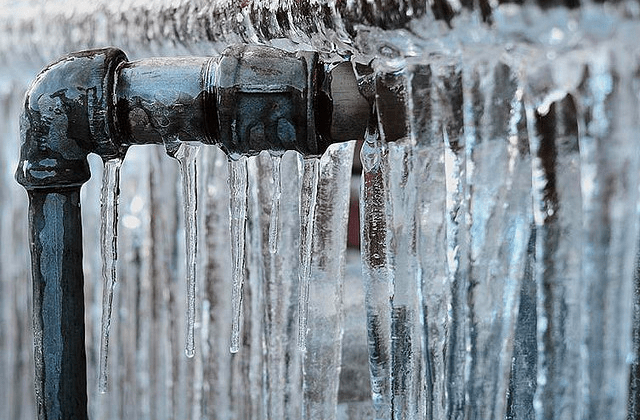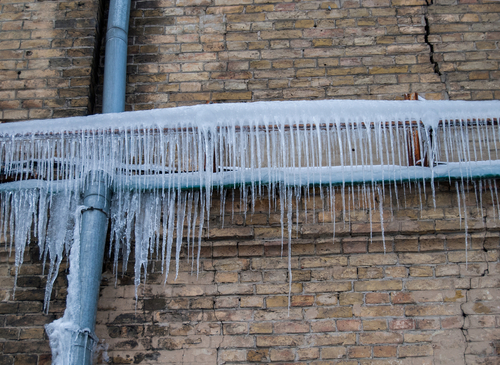Important Tips to Protect Against Frozen Pipes in Winter
Important Tips to Protect Against Frozen Pipes in Winter
Blog Article
We have found the article on How To Avoid Freezing Pipes below on the net and felt it made good sense to discuss it with you here.

Winter can wreak havoc on your pipes, particularly by freezing pipes. Below's how to stop it from happening and what to do if it does.
Intro
As temperatures decrease, the threat of frozen pipes rises, potentially causing expensive repairs and water damage. Comprehending exactly how to stop icy pipes is essential for home owners in cool climates.
Prevention Tips
Insulating susceptible pipes
Wrap pipes in insulation sleeves or make use of heat tape to shield them from freezing temperature levels. Concentrate on pipelines in unheated or external locations of the home.
Home heating strategies
Keep interior spaces sufficiently heated up, especially locations with pipes. Open cabinet doors to allow cozy air to flow around pipelines under sinks.
How to recognize icy pipes
Look for lowered water circulation from taps, uncommon odors or sounds from pipelines, and visible frost on revealed pipes.
Long-Term Solutions
Architectural adjustments
Consider rerouting pipelines away from outside wall surfaces or unheated areas. Include additional insulation to attic rooms, basements, and crawl spaces.
Updating insulation
Buy premium insulation for pipes, attics, and wall surfaces. Proper insulation aids preserve consistent temperature levels and lowers the risk of icy pipelines.
Securing Exterior Plumbing
Yard tubes and outdoor faucets
Detach and drain pipes yard tubes before winter season. Set up frost-proof faucets or cover outside taps with shielded caps.
Understanding Frozen Pipes
What causes pipelines to ice up?
Pipes ice up when subjected to temperature levels listed below 32 ° F (0 ° C) for extended periods. As water inside the pipelines ices up, it expands, taxing the pipeline walls and potentially causing them to rupture.
Dangers and damages
Frozen pipes can cause water disturbances, residential or commercial property damage, and expensive repair work. Burst pipes can flooding homes and create considerable architectural damage.
Signs of Frozen Pipes
Recognizing icy pipes early can stop them from rupturing.
What to Do If Your Pipes Freeze
Immediate activities to take
If you presume frozen pipelines, maintain faucets open up to ease pressure as the ice thaws. Use a hairdryer or towels taken in hot water to thaw pipelines slowly.
Verdict
Avoiding icy pipes needs aggressive steps and fast reactions. By recognizing the reasons, signs, and preventive measures, home owners can shield their plumbing during cold weather.
6 Proven Ways to Prevent Frozen Pipes and Protect Your Home
Disconnect and Drain Garden Hoses
Before winter arrives, start by disconnecting your garden hoses and draining any remaining water. Close the shut-off valves that supply outdoor hose bibs and leave the outdoor faucet open to allow any residual water to drain. For extra protection, consider using faucet covers throughout the colder months. It’s also important to drain water from any sprinkler supply lines following the manufacturer’s directions.
Insulate Exposed Pipes
Insulating your pipes is an effective way to prevent freezing. Pipe insulation is readily available at home improvement stores and is relatively inexpensive. Pay close attention to pipes in unheated areas such as the attic, basement, crawl spaces, or garage. Apply foam insulation generously to create a buffer against the cold. You can also wrap your pipes in heat tape or thermostat-controlled heat cables for added warmth.
Seal Air Leaks
Inspect your home for any cracks or openings that could let in cold air. Seal any holes around the piping in interior or exterior walls, as well as the sill plates where your home rests on its foundation. Additionally, make sure to keep your garage door closed unless you’re entering or exiting. Leaving it open creates a significant air leak that can lead to frozen pipes.
Allow Warm Air Circulation
During cold snaps, it’s essential to allow warm air to circulate evenly throughout your home. Leave interior doors ajar to promote better airflow. Open kitchen and bathroom cabinets to help distribute heat consistently around the rooms. If you have small children or pets, be sure to remove any household chemicals or potentially harmful cleaners from open cabinets for safety.
Let Faucets Drip
A small trickle of water can make a big difference in preventing ice formation inside your pipes. When temperatures drop significantly, start a drip of water from all faucets served by exposed pipes. This continuous flow helps prevent the water from freezing. Additionally, running a few faucets slightly can relieve pressure inside the pipes, reducing the chances of a rupture if the water inside does freeze.
https://choateshvac.com/6-proven-ways-to-prevent-frozen-pipes-and-protect-your-home/

Hopefully you enjoyed reading our post about Helpful Tips to Prevent Frozen Pipes this Winter. Many thanks for finding the time to browse our short article. Liked our piece? Please quickly share it. Help another person check it out. I thank you for your readership.
Here Report this page